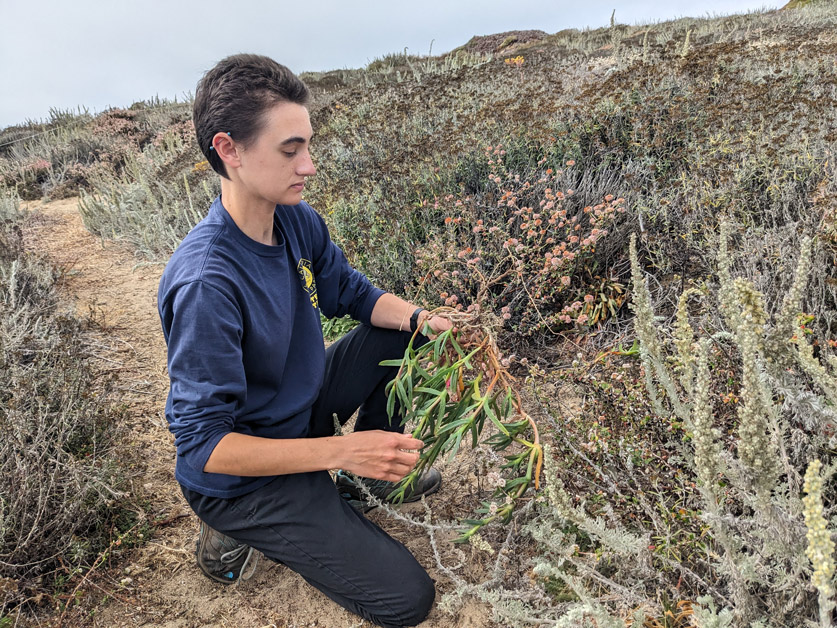Saving our parks

Nat Gibbs ’25 battles invasive species, protects endangered animals
Around these parts, Nat Gibbs ’25 is seen as somewhat of a hero. The biology major from Monterey, Calif., keeps the peace by saving those in need and disciplining wrongdoers looking to cause harm.
As a natural resources management intern in the California State Parks system, a typical day for Gibbs involved working to protect endangered animals, removing invasive plant species and even surveying bullets left over from an old army base.
“I was looking for something in habitat restoration and conservation biology,” Gibbs said of the summer internship. “It was such a special experience to figure out in detail what parts make up a healthy ecosystem and the relationship between the native species that support the health of the ecosystem as a whole.
“It was satisfying to know that the work I was doing helped make the state park healthier and more stable and helped to preserve it for both the visitors and the park itself.”
Gibbs worked to protect the Smith’s blue butterfly and the snowy plover, both of which are endangered.
In the 1920s and ’30s, Fort Ord was a military training ground for field artillery and cavalry troops. When the Army donated the land to California State Parks, it was under the condition that their employees would monitor the health of the dunes and provide quarterly reports, according to Gibbs.
“A lot of my job was learning survey and mapping techniques,” Gibbs said. “We walked through the dunes looking for old bullets and bullet casings from the army and rifle training. We monitored how much lead was leaching into the dune ecosystem and whether or not it was affecting the plants and other organisms there. Learning the history of all the work I was doing was really fascinating.”
Gibbs also monitored the coverage and, subsequently, removed an invasive species of ice plant that the army planted, unaware that it would take over the ecosystem.
After graduation, Gibbs, who would love a job that involves being outdoors, hopes to continue conserving protected areas.
Gibbs praised Wheaton College for providing practical skills like collecting samples and conducting independent research, and for cultivating communication and leadership skills, which came in handy when leading volunteer events at the internship.
The rising senior also spoke glowingly about the infectious energy on campus.
“The students are so passionate about what they’re learning and the professors are so passionate about what they’re teaching,” Gibbs said. “Even if there were courses I was worried about completing or not quite sure what the class would entail, everyone was very supportive and ready to talk and answer questions. The culture around learning is one of my favorite things about Wheaton.”
—By Scott Enman ’15
